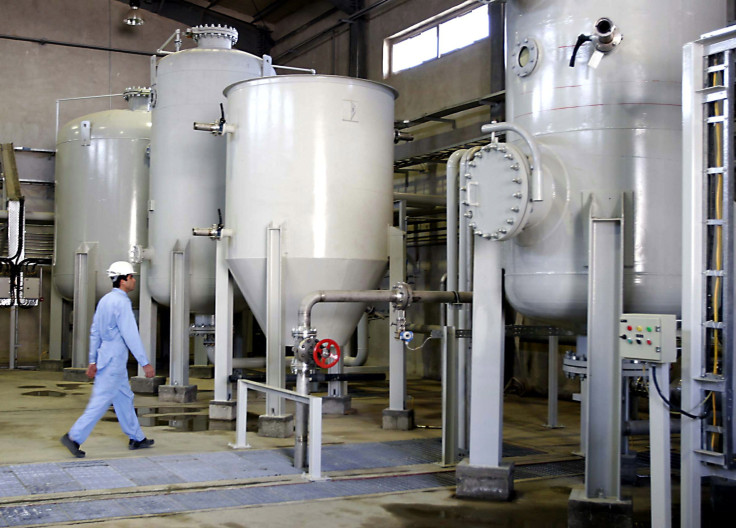US To Purchase Heavy Water From Iran For $8.6 Million, Deal To Be Signed Friday

The U.S. will purchase 32 tons of heavy water from Iran, in a deal valued at $8.6 million, the Wall Street Journal reported Friday, citing senior American officials. The deal will be signed by U.S. and Iranian officials in Vienna Friday.
“The idea is: Okay, we tested it, it’s perfectly good heavy water. It meets spec. We’ll buy a little of this,” U.S. Energy Secretary Ernest Moniz told the Journal. “That will be a statement to the world: ‘You want to buy heavy water from Iran, you can buy heavy water from Iran. It’s been done. Even the United States did it.”
Heavy water is a form of water in which both hydrogen atoms have been replaced by deuterium, which is a heavier isotope. It is used as a moderator in nuclear power reactors as it slows down neutrons and initiates fission.
However, it can also be used to produce plutonium, which can then be used in a nuclear bomb. As a result, the nuclear deal between Iran and the P5+1 group of countries, finalized last July, included terms that called for reconfiguration of Iran's Arak heavy-water nuclear reactor so that it was rendered incapable of producing plutonium.
The heavy water being purchased from the Atomic Energy Organization of Iran will be shipped to the Oak Ridge National Laboratory in Tennessee, where it would be used for research purposes.
“We’re securing material that will allow us to do great science. Heavy water is by far the most cost-effective way to increase neutron intensity that I can imagine,” Thomas Mason, director of Oak Ridge National Laboratory, told Science magazine.
The announcement of the purchase agreement comes just days after the Iranian government aired concerns about the perceived lack of relief from international sanctions that have long crippled its economy. Even though some of these sanctions were lifted in January, banks in the U.S. are still prohibited from doing business with Iran, and even foreign lenders are barred from carrying out dollar-based transactions with the country through American banks — an issue that has rankled Iranian policymakers and the government.
© Copyright IBTimes 2024. All rights reserved.






















